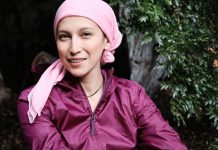
In a new study, researchers found that restricting eating to an eight-hour window, when activity is highest, may help decrease the risk of development, growth, and metastasis of breast cancer.
They found that time-restricted feeding — a form of intermittent fasting aligned with circadian rhythms — may improve metabolic health and tumor circadian rhythms in obesity.
The research was conducted by a team at the University of California San Diego School of Medicine and elsewhere.
Previous research has shown that obesity increases the risk of many cancers by negatively affecting how the body reacts to insulin levels and changing circadian rhythms.
Breast cancer is the second most common cancer among women in the United States, after skin cancers. One in eight women will develop breast cancer in their lifetime.
In the study, the team tested whether time-restricted feeding of obese mice affected the development and growth of tumors and reduced breast cancer metastasis to the lungs.
Both obesity and menopause can disrupt circadian rhythms, which in turn can lead to the development of insulin resistance, predisposing individuals to chronic diseases like cancer.
The team found that elevated insulin levels in obese mice are driving the accelerated tumor growth.
Artificially elevating insulin levels accelerated tumor growth, whereas reducing insulin levels could mimic the effect of the time-restricted feeding.
The results suggest that the anti-tumor effect of time-restricted feeding is due to improving metabolic health and lowering the levels of insulin.
The team says time-restricted eating has a positive effect on metabolic health and does not trigger the hunger and irritability linked to long-term fasting or calorie restriction.
Through its beneficial metabolic effects, time-restricted eating may also provide an inexpensive, easy to adopt, but effective strategy to prevent and inhibit breast cancer without requiring a change in diet or physical activity.
Exploring the ability of time-restricted eating to prevent breast cancer in women, or cancer, in general, could affect a wide range of patients.
One author of the study is Nicholas Webster, Ph.D., a professor at UC San Diego School of Medicine.
The study is published in Nature Communications.
Copyright © 2021 Knowridge Science Report. All rights reserved.



